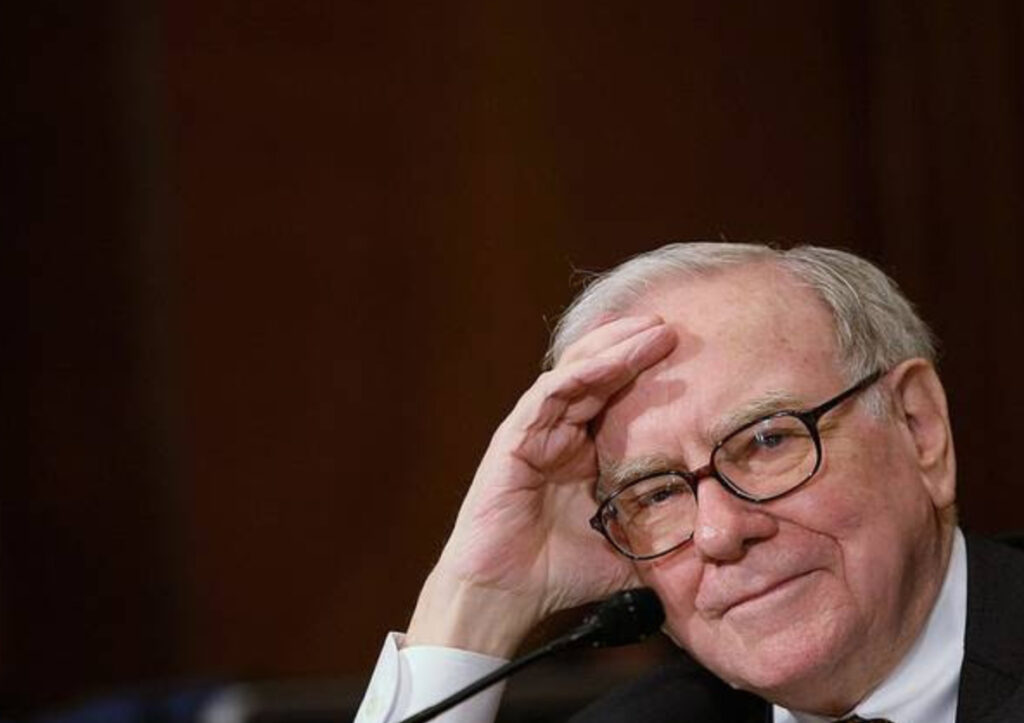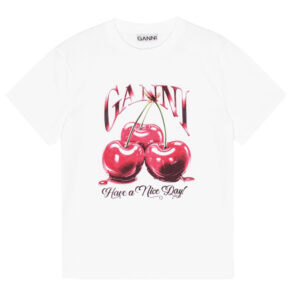Inside the cavernous heart of Omaha’s CHI Health Center, a singular American ritual unfolded. It had the atmosphere of a stadium concert, the hush of a cathedral, and the stakes of a summit. This was not merely another shareholder meeting—it was Woodstock for Capitalists, as the faithful have long called it. But in 2025, something changed. Something ended.
At 94, Warren Edward Buffett—sage of Omaha, patron saint of patience, and perhaps the last true steward of postwar capitalism—took the mic, as he has every spring since 1965. He spoke with wit. He answered questions. He meandered through aphorisms and anecdotes, detailing everything from AI to railroads to sugar-free Coke. And then, at the end of a day already filled with ritualistic adoration, he did something unimaginable.
He said goodbye.
Without fanfare, without prepared remarks, Buffett announced he would step down as CEO of Berkshire Hathaway by year’s end. The man who had piloted one of the most astonishing financial empires in history—the $1.1 trillion conglomerate born from the bones of a failing textile mill—was letting go.
For a moment, the room was silent. Then, the dam broke.
Thousands of investors rose to their feet in a kind of grateful delirium. A standing ovation swelled through the building. Even Buffett’s handpicked successor, Greg Abel, appeared stunned. He hadn’t been told in advance. Perhaps that’s how Buffett wanted it: not as a ceremonial coronation, but as a quiet relinquishment.
What a run it was.
From Mills to Magnates: The Alchemy of Berkshire
When Buffett took control of Berkshire Hathaway in 1965, it was a deflating New England textile company on life support. It had no prospects, no future, no real function. But Buffett, then just 34, saw something others didn’t: a shell that could contain something much greater. In the decades that followed, he poured cash into insurance companies and used the resulting float to build an empire.
Today, Berkshire owns 189 operating businesses, including American staples like GEICO, Duracell, and BNSF Railway. It also holds some of the most iconic equity stakes in the history of Wall Street—Apple, Coca-Cola, Bank of America, and Kraft Heinz, among others.
Berkshire’s investment return under Buffett has been astonishing. According to Barron’s, its stock could fall 99% and it would still outperform the S&P 500 since 1965. That’s because Berkshire has returned an average 19.9% annually, compared to the S&P’s 10.4%, dividends included.
But statistics alone do not tell the story. Buffett’s real innovation wasn’t just in compounding wealth—it was in compounding trust. He built Berkshire not as a flashy empire but as a cathedral of conservatism, where good businesses could be left alone to flourish and shareholders could sleep at night.
A Creed of Patience: The Buffett Philosophy
In an era increasingly driven by volatility, artificial intelligence, and high-frequency trading, Buffett remained committed to a deceptively simple creed: buy good businesses at fair prices, hold them forever, and let compound interest do the rest.
He preached it like scripture. “Be fearful when others are greedy,” he’d say. “It’s far better to buy a wonderful company at a fair price than a fair company at a wonderful price.” These so-called Buffettisms became business koans, passed around by investors, MBA students, and retirees alike.
But beneath their homespun clarity was a sharp moral spine. Buffett rejected the ephemeral, the predatory, and the synthetic. He avoided crypto, turned away from SPACs, and derided financial engineering. “We don’t do complicated,” he once said. “We just try to be rational.”
His discipline extended beyond capital. He refused stock splits, stayed in Omaha instead of Wall Street, and lived modestly in the same house he bought in 1958. He donated billions. He never chased luxury—he chased logic.
This, perhaps more than his portfolio, is what endeared him to so many: a man who became unimaginably wealthy without becoming unrecognizable.
Greg Abel and the Inheritance of an Empire
With Buffett’s departure comes the rise of Greg Abel, a Canadian-born executive who has led Berkshire Hathaway Energy and is widely credited with turning it into one of the nation’s top power producers. Quiet, competent, and Buffett-approved, Abel has long been seen as the heir apparent.
Now, the keys are his.
But what kind of kingdom does he inherit? Berkshire today is both titan and paradox. It owns brick-and-mortar giants like See’s Candies and Fruit of the Loom, but also holds tech-era winners like Apple. It has a $350 billion cash pile so large it could buy almost any public company—but has struggled to find worthy targets.
For ten straight quarters, Berkshire has been a net seller of equities. Buffett, famously cautious, has lamented the lack of attractive valuations. He has also warned of rising geopolitical risk, unpredictable regulatory shifts, and speculative exuberance.
Abel’s first test may be deployment: What to do with a cash hoard that rivals national GDPs? How does one invest like Buffett without being Buffett?
Moreover, Berkshire’s decentralized structure—where businesses run autonomously and headquarters exerts minimal oversight—demands a leader who can inspire trust without intrusion. Abel must become, in essence, a curator of stewardship.
Buffett’s Last Words (And Warnings)
Though the retirement announcement was unscripted, Buffett didn’t leave without imparting a few parting insights—some playful, others prophetic.
- On tariffs: “Trade should not be a weapon.”
- On volatility: “This has not been a dramatic bear market or anything of the sort.”
- On Apple CEO Tim Cook: “I’m somewhat embarrassed to say Tim Cook has made Berkshire a lot more money than I’ve ever made.”
In classic form, he downplayed risk while emphasizing rational optimism. He defended the durability of American enterprise while warning against short-term panic.
And, in perhaps his most revealing moment, he acknowledged he might “still hang around” and be useful. But this, clearly, is the end of his operational role.
He did not cling. He did not script the moment. He simply exited—with grace, wit, and one final mic drop.
The Oracle’s Legacy in an AI Economy
Buffett’s retirement also signals the twilight of an era. He was the last of the investing purists—the bridge between Graham-and-Dodd value analysis and modern portfolio theory. In a world now dominated by machine learning, algorithmic trading, and AI-driven analytics, his departure feels like the closing of a chapter.
What replaces it?
Already, investing culture is shifting toward social-media-fueled speculation. Meme stocks. Crypto rollercoasters. Decentralized finance protocols that seem to operate in another language. In that landscape, Buffett’s restraint almost feels defiant.
But his teachings remain evergreen. In fact, they may become more valuable as speed replaces sense.
Buy only what you understand. Leave margin for error. Let time, not timing, do the heavy lifting.
The Human Behind the Holding Company
To call Buffett simply a businessman is to miss his full cultural stature. He was also a teacher, a philosopher, and in some ways, a folk hero.
He made capitalism seem legible. He made ethics seem profitable. He reminded Americans that investing could be more than just extraction—that it could be about partnership, patience, and perspective.
His annual letters to shareholders were masterclasses in clarity. His meetings—marathons of candor and Midwestern charm. And his partnership with Charlie Munger, who passed away in late 2023, will be remembered as one of the great intellectual duos in modern history.
They didn’t just build a company. They built a way of thinking.
What Comes Next for Berkshire, and for Capitalism
The obvious question is: Can Berkshire succeed without Buffett?
The answer depends on how you define success. In financial terms, the company is more diversified, better capitalized, and more institutionally stable than ever. Abel is smart, respected, and aligned. But Buffett’s intangible capital—his ethos, his voice, his legend—is not easily replicated.
Perhaps the more profound question is what Buffett’s exit means for capitalism itself. For sixty years, he symbolized a version of American enterprise that was rooted, long-term, and temperamentally conservative. He was no activist. But he practiced a form of ethical capitalism that resisted both greed and gimmickry.
As the next generation of leaders emerges—some driven by profit, others by platform—the world will need to ask: What kind of capitalism do we want?
Because Warren Buffett is no longer at the helm.
And that, more than the stock price, is what truly changed on that spring afternoon in Omaha.
No comments yet.







